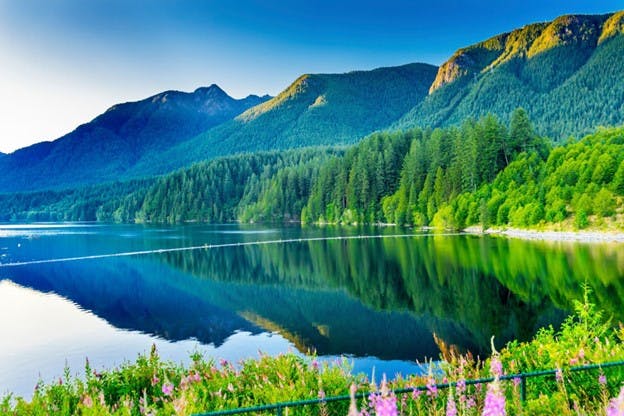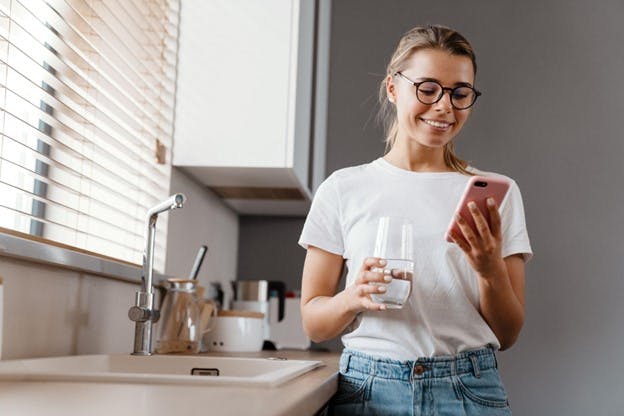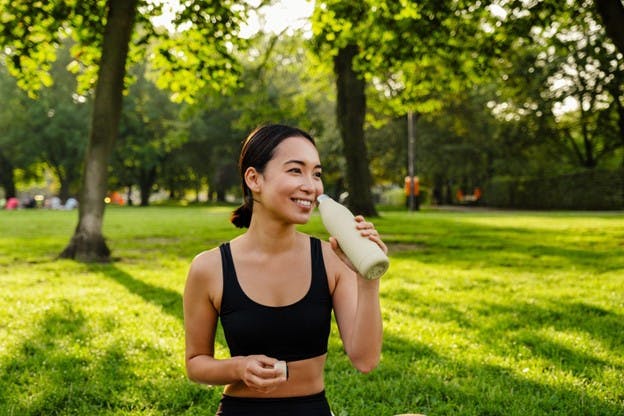September 2023
Your Complete Guide to Vancouver Water Quality
The city of Vancouver is unforgettable. Known for its incredible natural beauty, it has the most temperate climate in Canada. With its unique placement between rainforests, mountains, and the sea, the outdoor activities available to Vancouverites are endless. But if you don’t feel like being nourished by the outdoors, you could spend your time being taken in by the many different cultures here.
With the fifth highest quality of life ranking worldwide, it’s not surprising that so many people from around the globe want to call this Canadian jewel home. Vancouver is a mixing pot with the majority of the country speaking a first language other than English and no ethnic group making up more than 25% of the population. Not only is the city diverse, it’s also the most densely populated city in the country, and the third most populated overall next to Toronto and Montreal.
Over 2.8 million people share the resources of this unique stretch of earth, so it’s important that everyone does their part to keep the environment pristine. And no resource is more important than the watersheds that provide a home for wildlife, a place for recreation, and clean drinking water for millions of people.
In this article, we’re going to take a deep dive into Vancouver water quality. We’ll tell you the good, the bad, and everything else you want to know about the water coming out of your faucet.
The Dirty Truth About Vancouver Water Quality
If you live in Vancouver, consider a water filter due to potential bacteria, parasites, and chemical byproducts. HomeWater’s products can help improve the water quality in your home.
Explore our:
Where Does Vancouver Water Come From?
In a city where rainy days are the norm, it’s probably not surprising that Vancouver’s water starts its journey as rainfall and snowmelt from the mountains. The water collects in the Capilano, Seymour, and the Coquitlam reservoirs, which are closed to public access. Once it collects in the watershed, the water treatment, filtration, and distribution system are handled by Metro Vancouver.
How Is Vancouver Water Treated?
To ensure Vancouver’s drinking water quality is high enough to meet the standards of public health authorities, Metro Vancouver and Vancouver Coastal Health must be vigilant in monitoring public water sources.
As it travels through the city water system, water samples are tested multiple times and the water supply is treated at one of two of Metro Vancouver’s water filtration facilities.
With almost five times the treatment capacity of its smaller counterpart, the Seymour-Capilano Filtration Plant treats most of the water that eventually makes its way to 2.7 million Vancouverite taps.
This larger plant uses filtration to reduce turbidity, micro-organisms, and organic matter. Then the water runs through ultraviolet light treatment to inactivate leftover micro-organisms.
As the name implies, the much smaller Coquitlam Water Treatment Plant treats water from the Coquitlam Watershed. Due to less erosion than is found in the Seymour and Capilano Watersheds, the Coquitlam Water Treatment Plant doesn’t need to use filtration but instead uses ozonation. This process dissolves oxygen into the water to remove pollutants. Then they use UV light to inactivate the remaining microorganisms.
Once the water goes through the treatment plants, there are secondary chlorine disinfection treatments applied as it makes its way through pipes and water mains to your home.
How Often Is Vancouver Tap Water Tested?
To maintain Vancouver water quality at high levels, the drinking water is tested for some contaminants on a daily basis, and others annually. For E. coli and turbidity, both the treated water and the source water are tested daily. For ammonia, iron, and organic carbon, the tests are weekly. Pesticides, herbicides, volatile organic compounds (VOCs), and radionuclides are tested for annually.
The water mains and reservoirs of the Greater Vancouver Water District are tested weekly for E. coli, chlorine, and turbidity. For disinfection byproducts like total trihalomethanes and total haloacetic acids, testing at these sites is done quarterly.
Is It Safe to Drink Tap Water in Vancouver?
Tap water in Vancouver is considered safe to drink by Canadian authorities based on minimum quality standards for the contaminants they measure.
What those minimum standards for contaminants should be though is up for debate. For instance, some contaminants considered safe in Canada are banned in Europe.
There are thousands of potential contaminants that we don’t know much about. As more research is done, something we believe is safe today could be found to be unsafe in the future.
We are just learning more about many contaminants, like PFAS and microplastics. In the case of microplastics, while we know they are present, testing for them economically has proven to be too challenging for municipalities so there are no regulations on the amounts allowed in drinking water systems.
In other words, staying within the legal limits for regulated contaminants doesn’t always mean it’s safe.
Is Vancouver Water Quality Good?
Generally, Vancouver water quality is very good. However, contamination of the water supply does happen on occasion. Disease-causing pathogens from animal and human waste can easily contaminate drinking water supplies by entering lakes and water pipes.
While Vancouver works hard to keep the environment free of harmful chemicals and pathogens, the Canadian city, like so many others, is struggling to stay on top of it. This can be seen in frequent beach swimming advisories due to E.coli outbreaks.
Heavy rains send pollution-filled storm runoff into groundwater and surface water systems. There is potential for these pollutants to make their way into your drinking water.
What’s Polluting Vancouver Water?
Vancouver water quality reports show very low levels of contaminants, pollutants, and turbidity, but bacteria, parasites, and chemical byproducts might be present. Here are a few that caught our attention.
E. coli
E.coli is a constant problem for public water systems and beaches. The water is treated and filtered to reduce E. coli bacteria, which can be introduced through human and animal waste through stormwater runoff.
E. coli is linked to many different illnesses and infections including meningitis, septicemia, urinary tract infections, and intestinal infections.
Giardia and Cryptosporidium
Due to Giardia outbreaks in the 1980s, Metro Vancouver has closely monitored natural water sources for the parasites since 1987. While the levels of these contaminants tend to be low, they fluctuate greatly from year to year.
Giardia and Cryptosporidium are intestinal parasites that can cause cramping, diarrhea, nausea, and vomiting. Infection can be life threatening in immunocompromised individuals.
Chlorine and Disinfection Byproducts
Chlorine is added to the water supply during treatment to help destroy the organic contaminants (E. coli, Giardia, and Cryptosporidium). It’s also used at secondary disinfection stations further down the pipeline to prevent bacteria from regrowing as the water flows.
When chlorine interacts with organic matter in water, it produces disinfection byproducts (DPBs) like total trihalomethanes and total haloacetic acids. DPBs in drinking water are known to be carcinogenic and their levels are closely monitored by Metro Vancouver.
Does Vancouver Water Have Fluoride?
Vancouver water is not treated with fluoride, according to Metro Vancouver. They report that there is a trace amount that is naturally present in the drinking water, but no additional fluoride is used in treatment.
Fluoride is known to improve oral health by preventing cavities and tooth decay, but many provinces in Canada do not fluoridate the water. While some areas encourage community water fluoridation—meaning that cities or neighborhoods can decide if they want to add fluoride to the drinking water supply—other local governments recommend using fluoridated toothpaste or mouth rinse if the naturally occurring level of fluoride in the tap water is below the optimal level of 0.7 mg/L.
Metro Vancouver reports that the naturally occurring level of fluoride in Vancouver water is 0.05 mg/L. Since that is below the optimal level, Vancouver residents concerned about cavities may want to add fluoridated toothpaste or mouthwash to their shopping lists.
Is Vancouver Water Hard or Soft?
Vancouver water is soft, meaning it does not have a high concentration of dissolved minerals like calcium and magnesium. Water is considered hard when it has a high amount of mineral content.
Hard water can be damaging to your appliances, clothing, hair, and skin. It can also make your cleaning products — like soap, detergent, shampoo, and conditioner — less effective. Soft water like you’ll find in Vancouver, on the other hand, can help your products, appliances, and clothing last longer. You might even get better hair and skin with it!
Hard water gets its high mineral content from its source. Water that comes from rivers, aquifers, or stone storage reservoirs has a lot of time to dissolve the rocks it’s in contact with and increase its mineral content. Vancouver’s drinking water comes from rain and snowmelt, so it does not have much contact with rocks before it gets treated and sent through the pipes to Vancouver homes. This keeps the mineral content low and the water soft.
Get the Best Water Quality for Your Vancouver Home
Incredible natural beauty and rich cultural diversity make Vancouver a wonderful place to live. Regularly ranked amongst the best cities in the world in terms of quality of life, it’s Vancouver’s water quality we’re most concerned with.
While Vancouver generally has high water quality, there are still some concerns like pathogens, chlorine, and disinfection byproducts.
If you want the cleanest, best-tasting water imaginable, HomeWater can help. Our North-American-made water filters are an environmentally friendly and affordable way to remove contaminants like these from your water.
Our HomeWater UPSTREAM 4-Stage Whole Home Water Filter protects every tap in your home from chlorine, disinfection byproducts, lead, microplastics, pathogens, and more.
If you want something a little more targeted, our HomeWater 4-Stage Reverse Osmosis Under Counter Water Filter is easy to install and delivers an abundant supply of fresh-tasting drinking water right from your tap.



